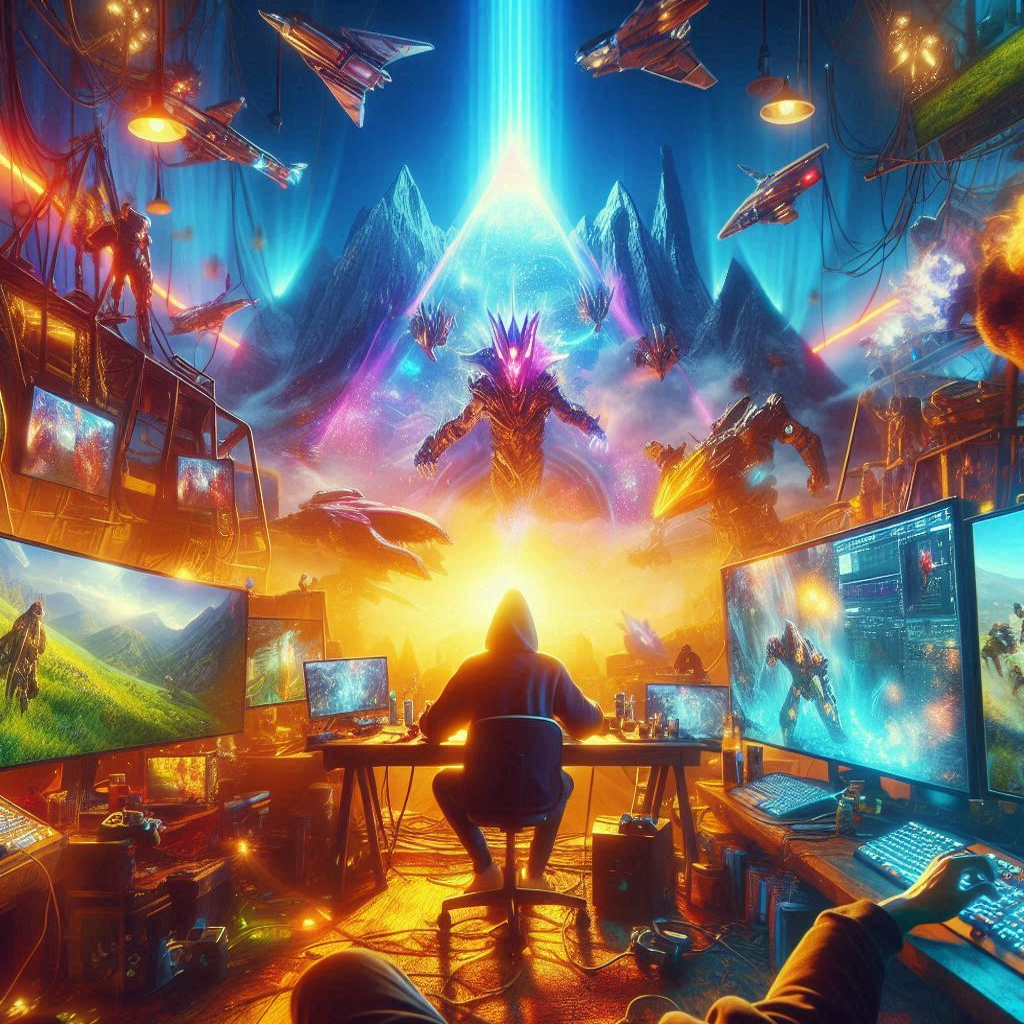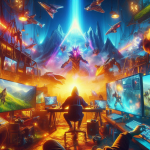Online game websites are becoming popular places where people from all over the world can come together and play games. These websites allow players to connect, make friends, and share their gaming experiences. This makes playing games more fun and exciting!
One way these sites create communities is by giving players the chance to talk to each other through chat rooms and forums. This is where they can share tips, discuss strategies, and even organize game nights. When players work together, they can feel like they are part of a team, which makes the gaming experience even better.
Another important part of these online game websites is the ability to create and join groups or guilds. A guild is like a club where players can team up for specific games or challenges. Being in a guild helps players feel more connected and provides a sense of belonging. They can celebrate victories together and support each other during tough times in the game.
To understand how this works, let’s look at some key terms:
Community: A group of people who share common interests or goals. In gaming, communities form around shared games or interests.
Guild: A group of players who come together to play games, often sharing tips and resources.
Forum: An online space where people can post messages, ask questions, and talk about topics, including gaming.
Chat Room: A virtual place where players can send messages to each other in real time while they play games.
In conclusion, online game websites are doing a great job of bringing players together to create new communities. They allow people to make friends, join groups, and share their love for gaming, making it a more social and enjoyable experience for everyone!
Understanding Online Game Communities
Online game websites are rapidly shaping new communities of players around the world. These communities often offer a space where players can engage, share experiences, and build friendships, transcending geographical boundaries. Let’s explore how these websites create unique environments for players and review various solutions for enhancing these communities.
What is an Online Game Community?
An online game community is a group of players who interact with each other through online games. These communities can exist within specific games, across multiple games, or even on social media platforms and forums dedicated to gaming. Some key characteristics of online game communities include:
- Interaction: Players can communicate in real time through chat, forums, and voice channels.
- Collaboration: Many games require teamwork, fostering partnerships among players.
- Support: Players often provide help and share tips to improve each other’s gaming skills.
The Role of Online Game Websites
Online game websites play a critical role by providing platforms where players can come together. They offer features such as:
- Forums: Spaces where players can discuss strategies, share stories, and ask questions.
- Leaderboards: Rankings that create friendly competition and motivate players to improve.
- Event Hosting: Websites often organize tournaments or special events that encourage participation and community bonding.
How Communities are Formed
Communities can form around various factors, such as:
- Shared Interests: Players often come together based on a mutual love for a particular game or genre.
- Social Connections: Real-life friendships can be strengthened or new friendships can be formed through gaming experiences.
- Shared Goals: Working together to achieve common objectives in games encourages collaboration.
“The most compelling and fun aspects of online gaming are those that bring players together.” – Game Industry Expert
Challenges Faced by Online Game Communities
While online game communities offer many benefits, they also face challenges:
- Toxicity: Negative behavior, such as bullying and harassment, can deter players from participating.
- Inclusion: Ensuring that all players, regardless of background, feel welcome and valued can be challenging.
- Fragmentation: With many games available, communities can become divided among various platforms, making it hard to maintain connections.
Possible Solutions
To overcome these challenges, several strategies can be implemented:
- Community Guidelines: Establishing clear rules for behavior can help create a respectful environment.
- Diversity Initiatives: Encouraging varied participation can enrich the community and provide different perspectives.
- Moderation: Active moderators can help manage discussions and ensure that toxic behavior is addressed promptly.
“Building a positive gaming environment takes effort from both players and developers.” – Community Manager
The Future of Online Game Communities
The future of online game communities looks promising, with continuous improvements in technology and communication tools. Players will be able to connect more easily and experience immersive environments that foster both fun and friendship.
Conclusion
In summary, online game websites are pivotal in forming new communities of players. They provide unique experiences that promote collaboration, friendship, and shared enjoyment amidst various challenges. By implementing supportive strategies, the online gaming space becomes an even better environment for everyone involved.
What are online game websites?
Online game websites are platforms where players can access and play a variety of games over the internet. These websites can host both casual games and competitive multiplayer experiences, catering to a wide range of interests and skill levels.
How do online game websites create communities?
Online game websites foster communities through features like forums, chat rooms, and social media integration. These spaces allow players to connect, share experiences, and engage in discussions about their favorite games, helping to build camaraderie and friendship among participants.
Why are communities important for players?
Communities enhance the gaming experience by providing support, motivation, and companionship. Players can collaborate, share tips, and find like-minded individuals who share their passion for gaming, making it a more enjoyable and enriching experience.
What role do multiplayer games play in community building?
Multiplayer games are crucial for community building as they require players to interact and work together towards common goals. This interaction often leads to friendships and long-lasting connections, as players team up in-game and communicate outside of the game environment.
How do events and tournaments contribute to community engagement?
Events and tournaments organized by online game websites serve to bring players together and ignite competitive spirits. These events encourage participation, create shared experiences, and often lead to the formation of teams or clans, further solidifying community bonds.
Can online game communities be beneficial for players?
Yes, online game communities can be beneficial by providing players with valuable resources, such as strategies, tutorials, and support groups. They offer opportunities for social interaction and can even help players improve their skills through collaborative play and shared knowledge.
What challenges do online game communities face?
Online game communities can face challenges such as toxic behavior, harassment, and conflicts among members. Managing these issues is essential for maintaining a positive environment where all players feel welcome and respected.
How do game developers support community building?
Game developers often support community building by creating tools for communication, encouraging player feedback, and hosting events that bring players together. By prioritizing player engagement, developers can cultivate a loyal and active community around their games.
What future trends might we see in online gaming communities?
Future trends may include greater integration of virtual reality, enhanced social features, and more personalized gaming experiences. As technology advances, online game communities are likely to become even more immersive and connected, further enriching the gaming landscape.







